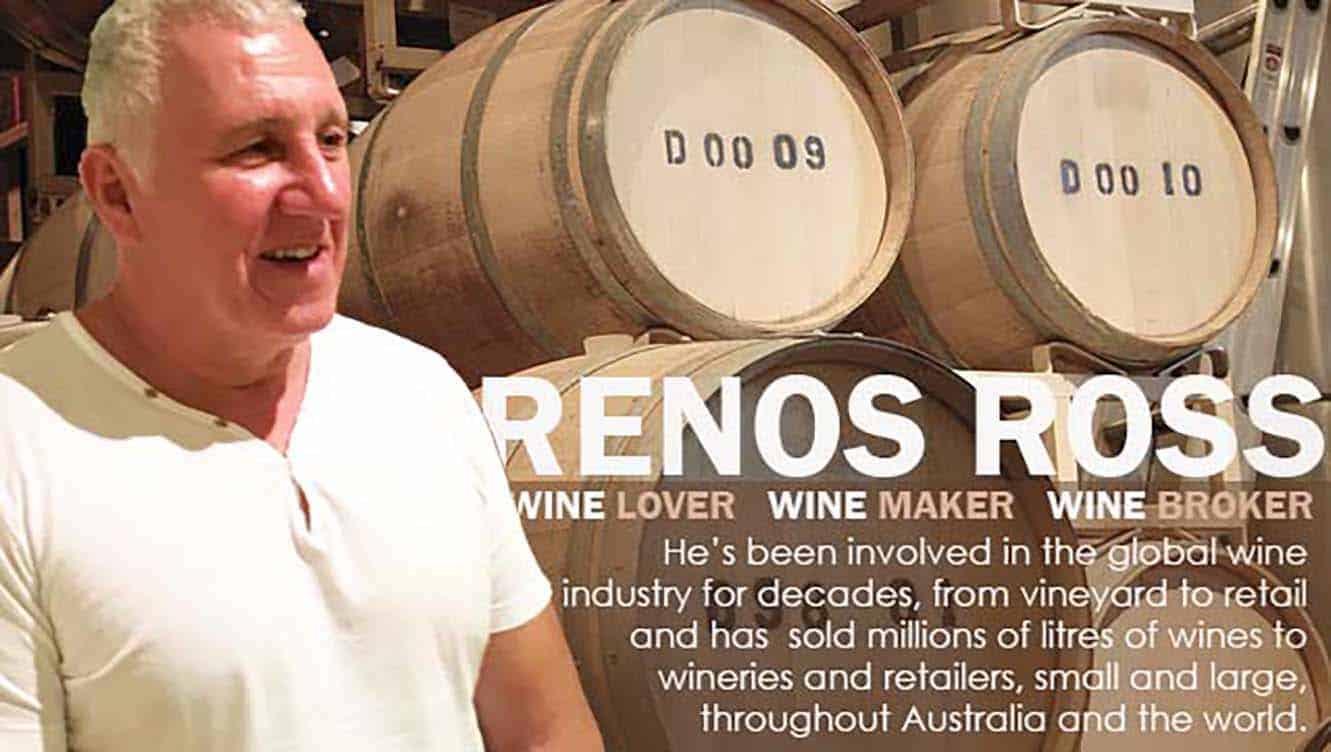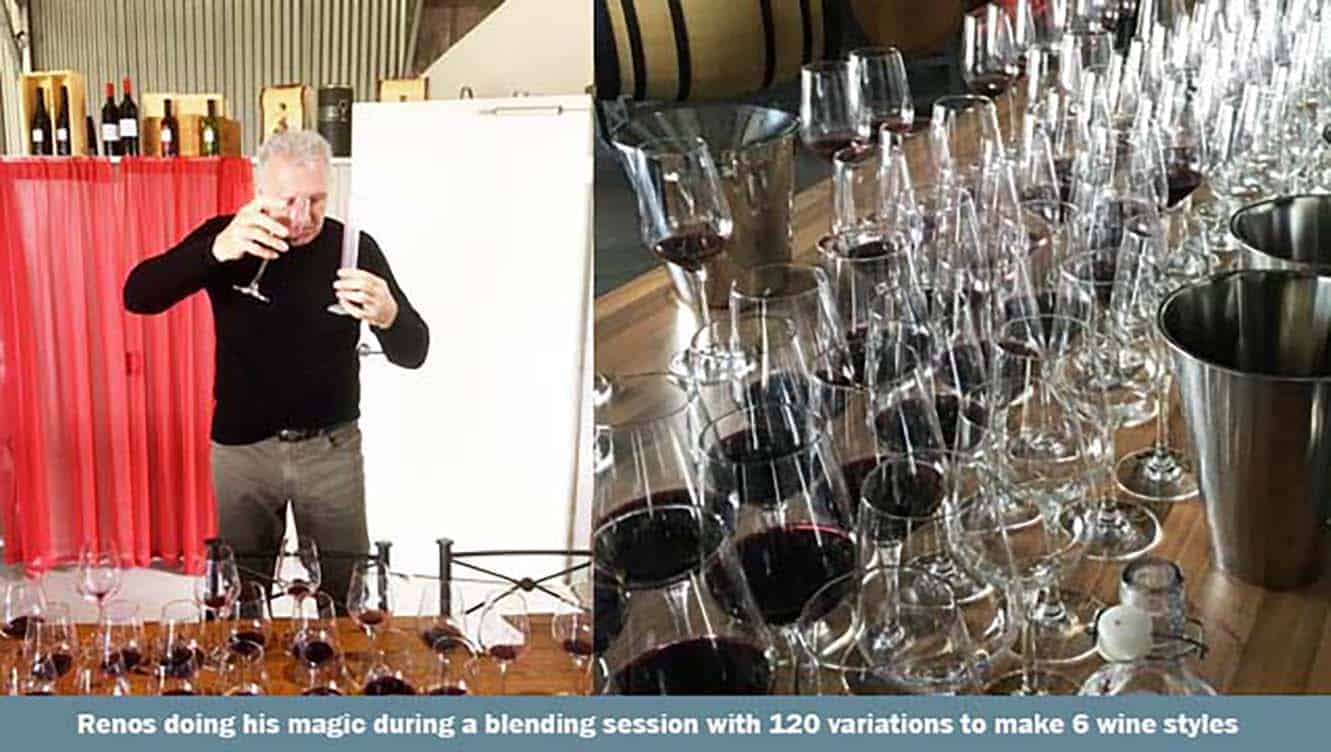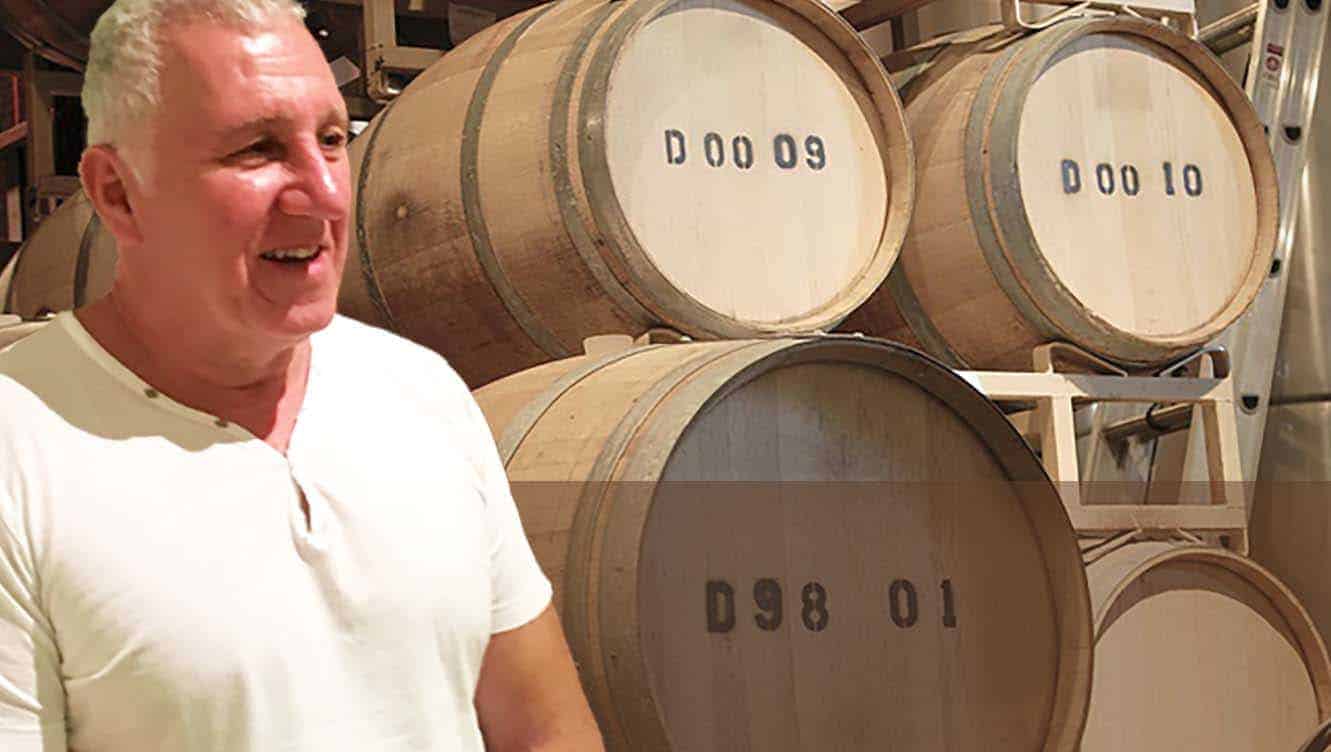As Australia’s first wine broker with an unparalleled knowledge of every wine and winery in the country, Renos Ross has been involved in the wine industry, from vineyard to retail for over 30 years and sold millions of litres of wines to wineries and retailers, small and large, throughout Australia and the world.

By Alex Constantine
To say that wine runs through his veins might not be far from the truth, given his family have been involved in the global wine industry as far back as the 1800s with a great grandfather who was the biggest wine merchant in Egypt at the time.
After leaving war-torn Cyprus for England, his family migrated to Australia arriving paradoxically as £10 poms on the SS Canberra and setting up home in the Sydney suburb of Erskineville.

Unsurprisingly his family set up a wine shop in Enmore, next to the iconic Greek cinema Enmore Theatre and fondly recalls an anecdote concerning his feisty Greek grandmother.
‘’It was about 1977 and a robber walks into our shop with a shorn-off shotgun and demanded my grandmother give him all the money in the till. My grandmother, Mary, yelled at him, ‘You got to be joking?!" He responded ‘Shut up old lady and give me the money!’ My grandmother refused, ‘No way, you know how hard it is to make a living? I've got to pay taxes to the Government, and they are bastards and you want me to give you my money!’ My grandmother opened the till, threw a couple of hundred bucks and then ordered he leave the shop. He obeyed!’’ laughs Ross.
After graduating high school he attended the prestigious Roseworthy Agricultural College and studied winemaking with some of the biggest names today in the industry and from there entered the commercial arena.
A chance query for an order of 40,000 litres of chardonnay prompted him to start calling all the local wineries to meet the client’s needs and became his initiation into becoming the first bulk wine broker.
As the orders increased so did the appetite for research and knowledge with Ross contacting each and every winemaker in the country, collating information on every wine, every region, every quality and every variety to the point where the extensive database of information was used to help value wines.
"Because I dealt with all the wineries in Australia I got to know all the areas quite well. I saw what the quality was like in each winery and how they maintained their vineyards,’’ says Ross.

It comes as no surprise he is often consulted by industry and governments alike for his extensive knowledge, with even the Chinese government inviting him for a tour of all the wine-growing regions in China.
Ross has a sentimental ambition as well: to help re-boot Greece’s wine industry and re-imagine how Greek wines are marketed and promoted around the world.
Ironically, it was the ancient Greeks that pioneered various methods of viticulture and wine production and through their colonies, spread their knowledge and introduced wine culture across modern-day France, Germany and Italy not to mention their influence on the Celts, Etruscans and Romans.
In fact, a recent study by Ancient History Professor Paul Cartledge discovered that the French wine industry, the world’s biggest, might never have developed had it not been for Greeks who settled in southern France around 600BC. Let’s not forget the founding of the Greek colony Massalia, modern-day Marseilles.

‘’I’m liaising with leading wine industry agencies in Greece, an initiative facilitated with the help of the Consul-General of Greece Dr Stavros Kyrimis. I’m hoping we can start reshaping the Greek wine industry. We have some way to go, but I’m optimistic,’’ says Ross.
When prompted to explain why Greek wines don’t have the same market penetration and popularity of their European counterparts given the historical facts, Ross referred to the Australian case study to give some context.
‘’Australia is not a traditional wine making country. It lacks the historicity and cultural heritage European countries have, yet Australian wines, despite also adverse climatic conditions became very popular because they were technically perfect wines’’ he says.
According to Ross, Australian wines were better than most European wines largely due to their quality. They had temperature-controlled fermentation, the wood was new, lines were clean, and they conformed to the highest hygiene standards. All factors that affected taste; the wine didn’t tasty muddy.
On the other hand, Europeans used old wood, there was no temperature-controlled fermentation, allowing for some oxidation to creep in. Ross also claims the Europeans had over time acquired what is known as a ‘’cellar palette’’, essentially a fault in the wine that winemakers had been accustomed to that they thought it was the right taste.
Soon enough though, the Europeans adopted much of the Australian technological excellence and improved their wines.
‘’Australians went to Europe and helped them pick up their game by sharing their technology, introducing new pruning methods and so on,” he adds.
But what about Greece?
Greece has the same qualitative issues with wine production but also doesn’t have any designated wine-growing regions. Nonetheless, the Greek wine industry has made significant progress in the last 10 years and according to Ross, Greek wines have every possibility of greater market share and popularity, provided there is greater solidarity and sharing of technology and methods by all winemakers stakeholders back in Greece.

‘’Greece has that history that Europe and China loves. Greek wines have every right and potential to ‘conquer’ the world. There is a rich and ancient culture associated with them that not many countries can claim’’ Ross emphatically points out, and it is at this point that he hints at new marketing methods and a new system he is working on to achieve this.
‘’I can’t disclose too much at this point but I am working with various stakeholders in the industry on a new marketing system to re-imagine Greek wines and their re-introduction to the world’’.
As he points out, presentation and marketing are also important factors in the future success of Greek wines and insists on making clever use of our history and culture by pairing our wines with our diverse and rich gastronomy as well as that of our cultures.
‘If you want to enter the Chinese market, perhaps demonstrate which wines work with what dishes from that respective food culture’ insists Ross.
Finally, on the issue of branding and naming, Greek wines aren’t the easiest to pronounce for many of us Greeks let alone foreigners and that, Ross says, is an existing and real challenge he hopes to overcome with his plans.
When asked to reveal his plans:
‘’They’re fermenting,’’ he smiles.
*Graphs Source: Wine Economics Research Centre, University of Adelaide


